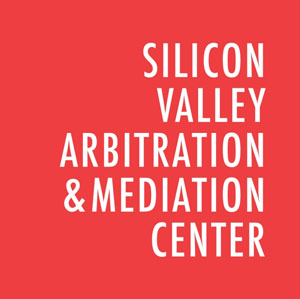On September 20, the Tech List Coordinating Committee kicked off its upcoming series of webinars with Arbitrating Patent Cases, Setting the Right Course. The webinar was presented by tech list appointees David Allgeyer, author of the new ABA book Arbitrating Patent Cases: A Practical Guide, and Yaroslav (Yarko) Sochynsky, an arbitrator and mediator with decades of experience with technology-related disputes. The webinar focused on the pre-hearing phases of patent arbitration, including a very useful slide deck. Discussion included the following:
License agreements are the most likely source of patent arbitration agreements, although joint development, employment, and supply agreements are also good candidates. Done correctly, parties can achieve a knowledgeable decision maker, quicker resolution, more focused and inexpensive discovery, and other advantages. One attendee noted that arbitrating international patent disputes can foreclose the need to engage multiple patent offices and courts.
The right arbitration clause is critical. David and Yarko noted that they are “minimalists.” They suggested beginning with a model clause of an arbitration organization, then specifying the number of arbitrators, location, applicable law, and, in some jurisdictions, a limitations period.
With the basics in place, you can use the scheduling conference to set the right course for the case. It is possible to add other details to the arbitration clause, including discovery, timing of the hearing, arbitrator qualifications, and the like. But be careful not to require impossible timing or qualifications that narrow the pool of arbitrators too much.
 Party arbitrators are rarely a good idea. And remember that, under AAA rules, for example, even party arbitrators are required to be neutral unless the parties agree otherwise.
Party arbitrators are rarely a good idea. And remember that, under AAA rules, for example, even party arbitrators are required to be neutral unless the parties agree otherwise.
The benefits of administered arbitration are many, including dealing with deposits, concerns about arbitrator neutrality and the like. Yarko and David agreed that if parties incorporate AAA rules in their contract, they typically will not agree to serve in a non-administered arbitration since AAA administration is part of the rules. Attendees noted that where a party insists on non-administered arbitrations, some arbitration organizations will provide specific administrative services, such as handling deposits and payment, on an ad hoc basis for a reasonable fee.
A carefully designed scheduling order is critical to setting the right course for the case. Yarko provides a template scheduling order and asks counsel to try to reach agreement on as much as possible. A protocol for electronically stored information is a must. Requiring an initial exchange of information regarding witnesses and documents, followed by requests for other necessary information, is an efficient way to proceed.
Arbitration provides for flexibility in dealing with disclosures and preliminary determinations in patent cases. For example, in some cases where claim interpretation is critical, focusing all efforts on an early Markman hearing could be the best approach. Others may best be handled by reserving all issues for the hearing. Flexibility, based on the particulars of the dispute, is one of the great benefits of arbitrating patent matters.
